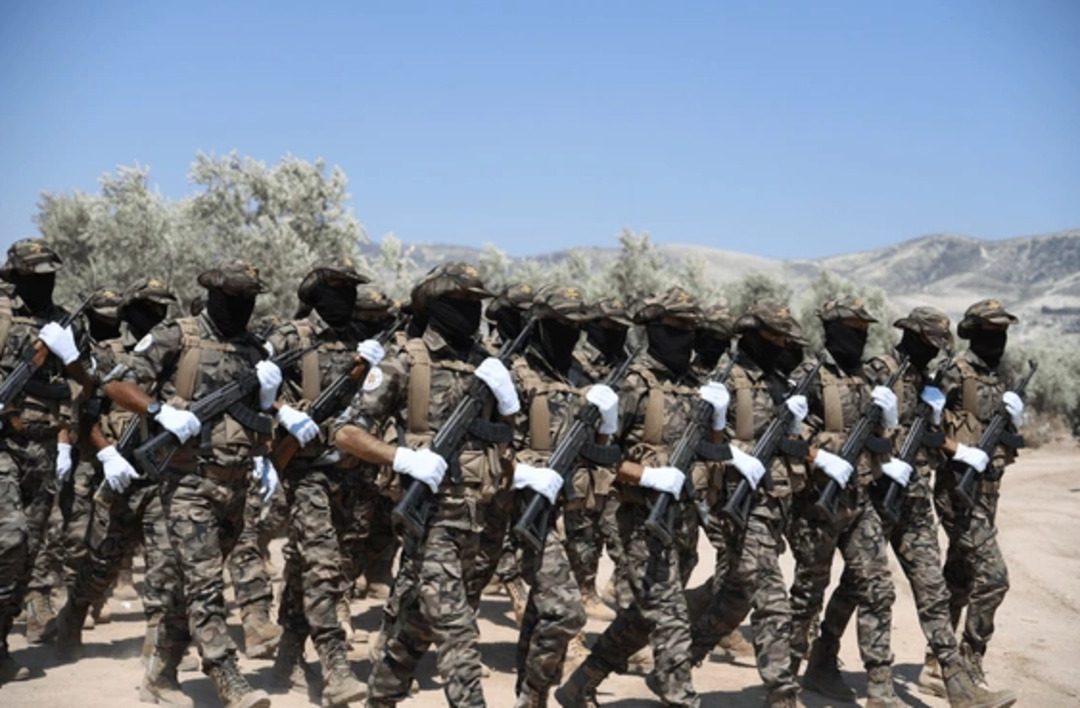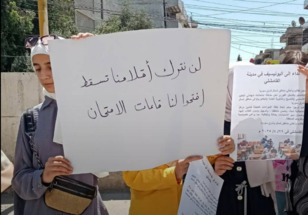-
The Trust Gap: Syria's Obstacles in Joining the International Coalition Against Terrorism

Reports indicate that Syria's efforts to join the international coalition against the Islamic State in Iraq and Syria (ISIS) have faced notable setbacks for the second time. Various sources, including from the United States, France, and Syria, have confirmed that these consultations have halted, reflecting the widening gap between the objectives of Western countries, primarily the United States, and the Syrian government's responses to these demands.
In this context, the challenge facing the transitional government in Damascus is to establish its reliability as a partner in the regional and international security system. Observers question whether the stagnation in joining the coalition stems from a profound misunderstanding between the West and Damascus or from a lack of political will alignment, as Damascus still lacks the necessary elements to be an effective partner in international counter-terrorism efforts.
Internally, sources have reported that Paris, in cooperation with Germany and Saudi intervention, has made intense efforts to convince Syrian President Ahmed Al-Shara to submit a new application for coalition membership. This initiative comes in light of the belief that joining would positively impact the trajectory of the transitional phase in Syria, and enhance Damascus's standing in the eyes of the West, particularly Washington.
It is noteworthy that the international coalition against ISIS, led by the United States, is not only a military component but also an international standard for measuring whether countries align with the democratic values upheld by Western powers. According to Syrian researcher Malik Al-Hafez, the importance of military professionalism and the rejection of cross-border militia dominance are essential criteria for joining.
In a related context, during the opening of the German embassy in Damascus on March 20, German Foreign Minister Annalena Baerbock called on Syrian authorities to join the international coalition, adding that it is the responsibility of Damascus to control extremist groups within its ranks and hold accountable those responsible for crimes, particularly referencing events in coastal areas where hundreds, mostly from the Alawite community, lost their lives.
Despite ongoing efforts, an informed Syrian source confirmed that Damascus had submitted a new application for membership ten days ago, based on the support it received from French, German, and Saudi efforts. The Syrian government feels it has successfully passed the government formation test with high success, despite the various pressures it faced.
However, it seems that the international coalition has not accepted the request, with clear reasons prompting such a decision. The application has been left hanging without an official response, which could be seen as a deadline for Damascus to meet the required conditions. This reflects the growing distrust in the Syrian regime's ability to live up to the necessary partnership for combating terrorism.
Al-Hafez indicated that Saudi Arabia was among the countries pushing for the acceptance of the transitional government's membership, demonstrating a regional Arab desire to integrate the new Syria into international systems, provided that it undergoes a fundamental transformation in its past practices. Yet, the obstacle appears to lie in the failure to achieve this break.
On the other hand, a diplomatic source in Washington reported that Damascus still tends to have unrealistic bets to secure political recognition from the United States. Weeks ago, the Biden administration issued a clear request to the Syrian transitional authorities, including a list of prominent military officers in the Syrian army who hold foreign nationalities, indicating that the presence of these officers poses a threat to global security. These officers represent seven individuals who were promoted under Resolution No. 8 issued by the Commander-in-Chief, who had previously authorized Al-Shara's presidency.
In this context, the American source considered the Syrian government's refusal to respond to this request as a precise action lacking wisdom, as the clear goal of this request was to test the possibilities of building trust with the new American administration, and subsequently advance a request to join the international coalition.
In a comment, Al-Hafez stated that the transitional Syrian government's insistence on retaining foreign leaders in senior positions within the new army is not only inexplicable...
You May Also Like
Popular Posts
Caricature
BENEFIT Sponsors BuildHer...
- April 23, 2025
BENEFIT, the Kingdom’s innovator and leading company in Fintech and electronic financial transactions service, has sponsored the BuildHer CityHack 2025 Hackathon, a two-day event spearheaded by the College of Engineering and Technology at the Royal University for Women (RUW).
Aimed at secondary school students, the event brought together a distinguished group of academic professionals and technology experts to mentor and inspire young participants.
More than 100 high school students from across the Kingdom of Bahrain took part in the hackathon, which featured an intensive programme of training workshops and hands-on sessions. These activities were tailored to enhance participants’ critical thinking, collaborative problem-solving, and team-building capabilities, while also encouraging the development of practical and sustainable solutions to contemporary challenges using modern technological tools.
BENEFIT’s Chief Executive Mr. Abdulwahed AlJanahi, commented: “Our support for this educational hackathon reflects our long-term strategic vision to nurture the talents of emerging national youth and empower the next generation of accomplished female leaders in technology. By fostering creativity and innovation, we aim to contribute meaningfully to Bahrain’s comprehensive development goals and align with the aspirations outlined in the Kingdom’s Vision 2030—an ambition in which BENEFIT plays a central role.”
Professor Riyadh Yousif Hamzah, President of the Royal University for Women, commented: “This initiative reflects our commitment to advancing women in STEM fields. We're cultivating a generation of creative, solution-driven female leaders who will drive national development. Our partnership with BENEFIT exemplifies the powerful synergy between academia and private sector in supporting educational innovation.”
Hanan Abdulla Hasan, Senior Manager, PR & Communication at BENEFIT, said: “We are honoured to collaborate with RUW in supporting this remarkable technology-focused event. It highlights our commitment to social responsibility, and our ongoing efforts to enhance the digital and innovation capabilities of young Bahraini women and foster their ability to harness technological tools in the service of a smarter, more sustainable future.”
For his part, Dr. Humam ElAgha, Acting Dean of the College of Engineering and Technology at the University, said: “BuildHer CityHack 2025 embodies our hands-on approach to education. By tackling real-world problems through creative thinking and sustainable solutions, we're preparing women to thrive in the knowledge economy – a cornerstone of the University's vision.”
opinion
Report
ads
Newsletter
Subscribe to our mailing list to get the new updates!





















